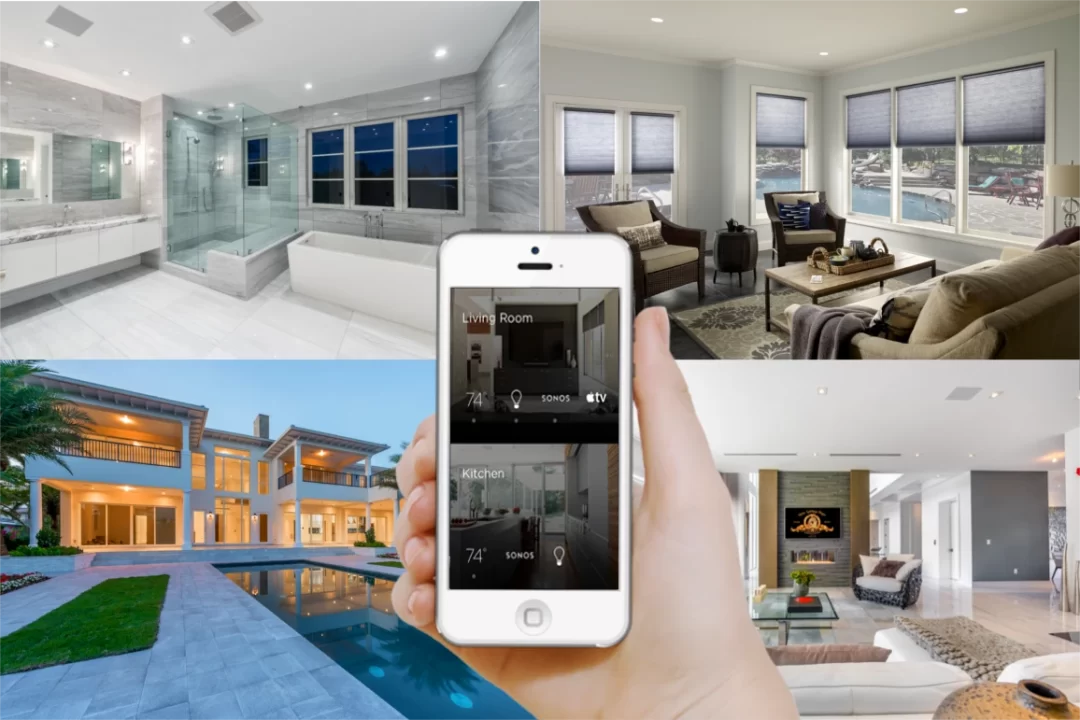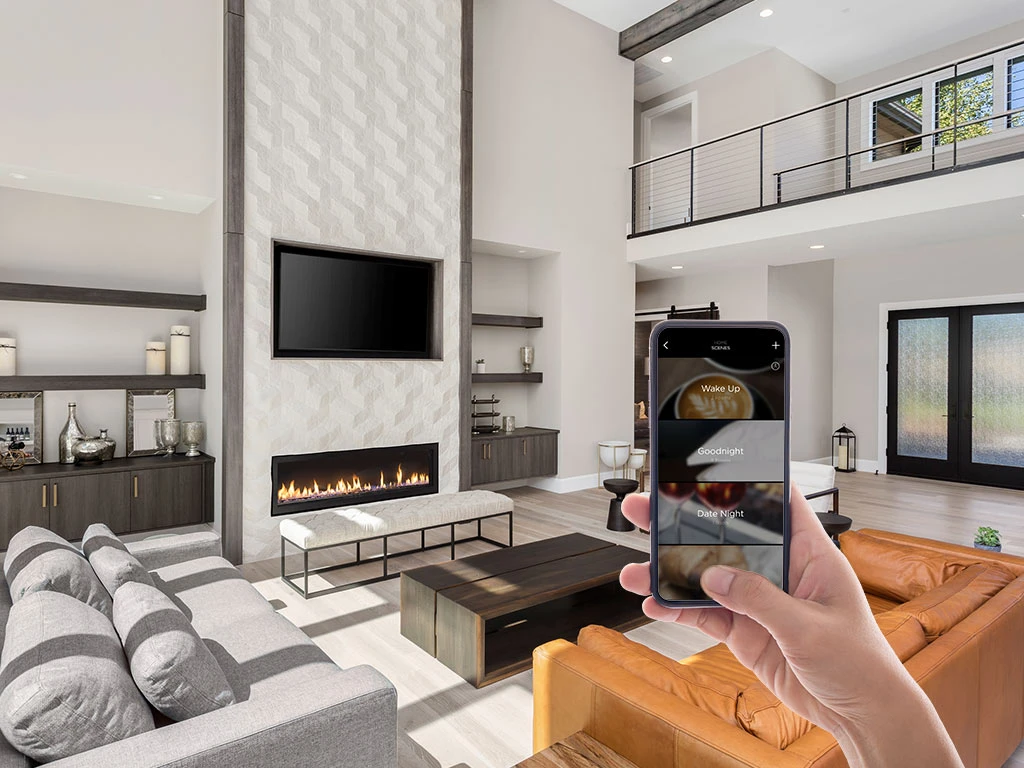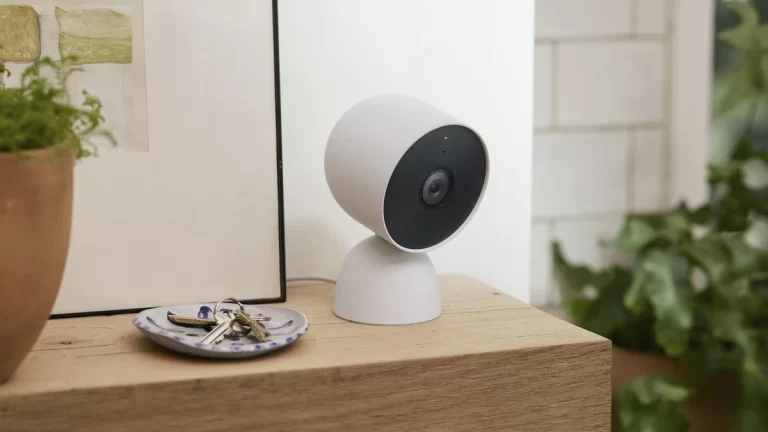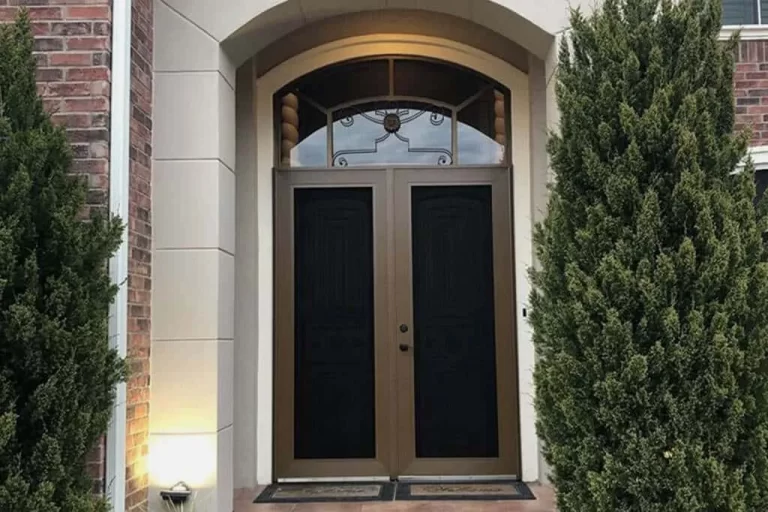What is the Difference Between Smart Home and Home Automation?
What is the difference between smart home and home automation? Discover how these two concepts differ, their benefits, and how they’re shaping the future of modern living. Read on to become an expert on smart homes and home automation.

What is the Difference Between Smart Home and Home Automation?
To grasp the dissimilarities between smart homes and home automation, it’s crucial to understand their individual definitions and applications.
Smart Home
A smart home is a residence equipped with advanced devices and appliances connected through the Internet of Things (IoT).
These interconnected devices can be controlled and monitored remotely, providing homeowners with unprecedented convenience and efficiency.
Examples of smart devices include smart thermostats, smart lighting systems, smart security cameras, and smart voice assistants like Amazon Echo or Google Home.
Home Automation
Home automation, on the other hand, refers to the process of automating various tasks and systems within a house to simplify and streamline daily activities.
It involves programming devices and systems to perform certain functions automatically, without the need for manual intervention.
Home automation can encompass a wide range of applications, such as automatic door locks, motorized blinds, automated irrigation systems, and more.
Advantages of Smart Homes and Home Automation
Understanding the benefits of both smart homes and home automation can help homeowners make informed decisions based on their specific needs.
Advantages of Smart Homes
1. Convenience: With smart devices, homeowners can control various aspects of their homes through mobile apps, voice commands, or scheduled routines.
2. Energy Efficiency: Smart thermostats and lighting systems can optimize energy usage, reducing utility bills and environmental impact.
3. Security: Smart security cameras, motion sensors, and doorbell cameras enhance home security, providing peace of mind to homeowners.
4. Accessibility: Smart homes offer accessibility features that cater to individuals with disabilities or special needs.
5. Entertainment: Smart home entertainment systems allow for seamless media streaming and immersive experiences.
Advantages of Home Automation
1. Time-Saving: Home automation eliminates the need to manually operate multiple devices, saving time and effort.
2. Increased Safety: Automated security systems can deter potential intruders and promptly alert homeowners in case of emergencies.
3. Enhanced Comfort: Automated climate control and lighting systems create a comfortable living environment.
4. Cost-Effectiveness: Over time, home automation can lead to cost savings due to optimized energy usage and reduced maintenance requirements.
5. Customization: Home automation solutions can be tailored to suit individual preferences and lifestyles.
The Future of Smart Homes and Home Automation

As technology continues to advance, smart homes and home automation are poised to transform the way we live.
1. Integration with AI and Machine Learning
The integration of artificial intelligence (AI) and machine learning algorithms will take smart homes to the next level.
These technologies will enable systems to learn from user behavior and preferences, anticipating their needs and providing personalized solutions.
2. Energy-Efficient Smart Cities
Smart homes will play a significant role in creating energy-efficient smart cities.
Through interconnected energy grids and smart meters, cities can manage power consumption more effectively, reducing wastage and promoting sustainability.
3. Health and Wellness Tracking
Future smart homes will incorporate health and wellness monitoring systems. IoT-enabled devices will track vital signs, sleep patterns, and fitness levels, helping residents lead healthier lives.
4. Augmented Reality (AR) Home Design
Augmented reality will revolutionize home design and renovation. Homeowners will be able to visualize potential changes and upgrades before implementation, leading to more efficient decision-making.
5. Enhanced Home Security
Advancements in smart security systems will make homes even more secure. Facial recognition, biometric access control, and advanced surveillance technologies will deter intruders effectively.
Conclusion
In conclusion, while “smart home” and “home automation” are related concepts, they represent distinct aspects of modern living. Smart homes rely on interconnected devices and the IoT to enhance convenience and efficiency, while home automations automates tasks and systems to simplify daily life.
READ ALSO!!!




